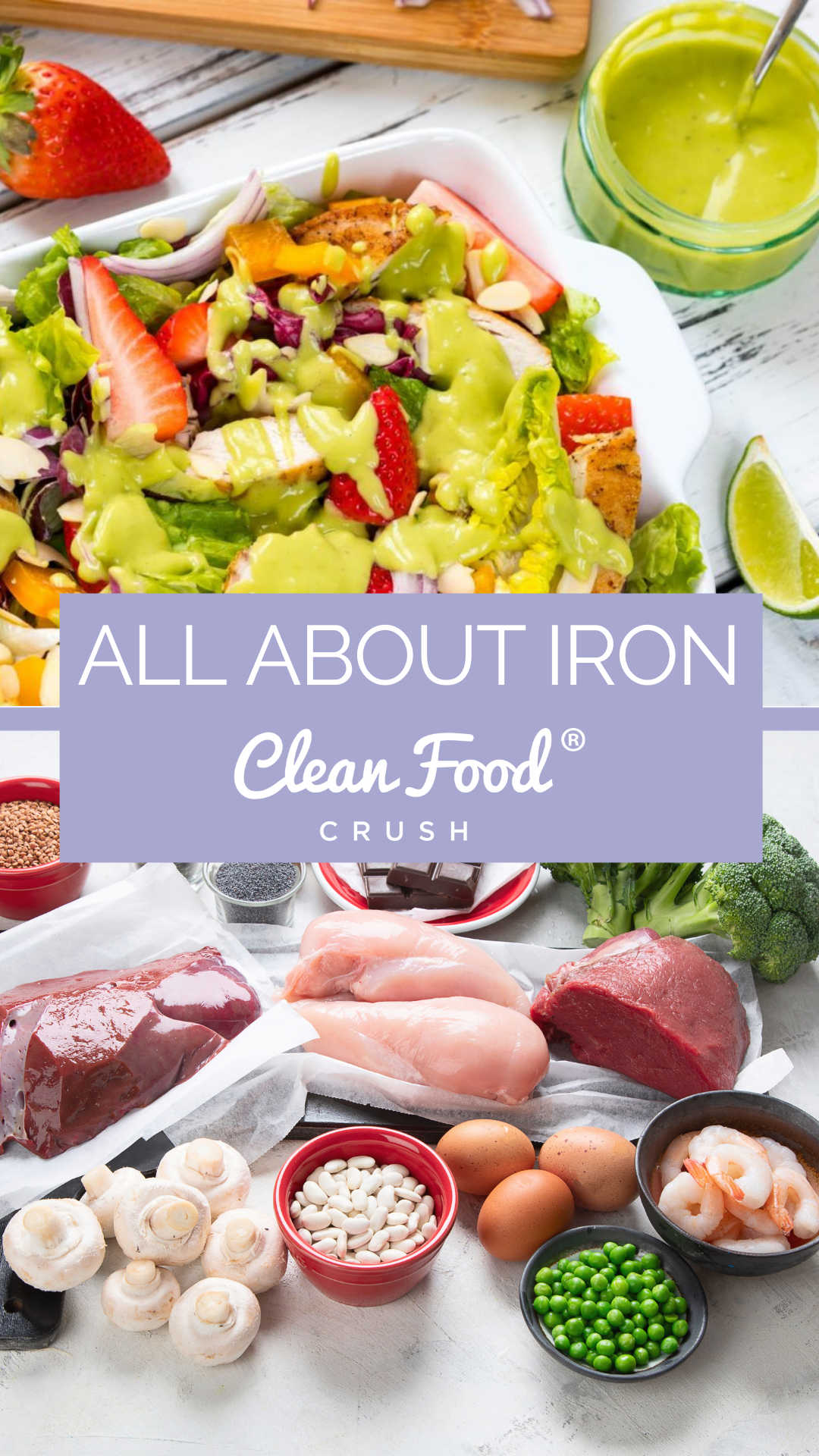

Why Does Iron Matter and How Can You Get Enough?
When it comes to nutrition, many vitamins, minerals, and other nutrients play roles in keeping your body healthy. While a lot of emphasis gets put on carbohydrates, protein, and fat, minerals such as iron are less often discussed.
Iron plays crucial roles in your body, but many people don’t get enough. Read on to learn more about what iron does, why deficiency is so common, and what you can do to ensure you’re getting enough.
What Is Iron and What Does It Do?
Iron is a type of mineral found in many foods. It is a crucial component of hemoglobin, red blood cells that transport oxygen to all bodily tissues. The body cannot make iron, so we must obtain it through diet alone. Without iron, you simply wouldn’t survive. That’s because it plays so many vital roles, including:
- Supporting oxygen transport and normal organ functioning
- Aiding in physical growth
- Promoting brain development
- Supporting the normal functioning of cells
- Helping the production of some hormones
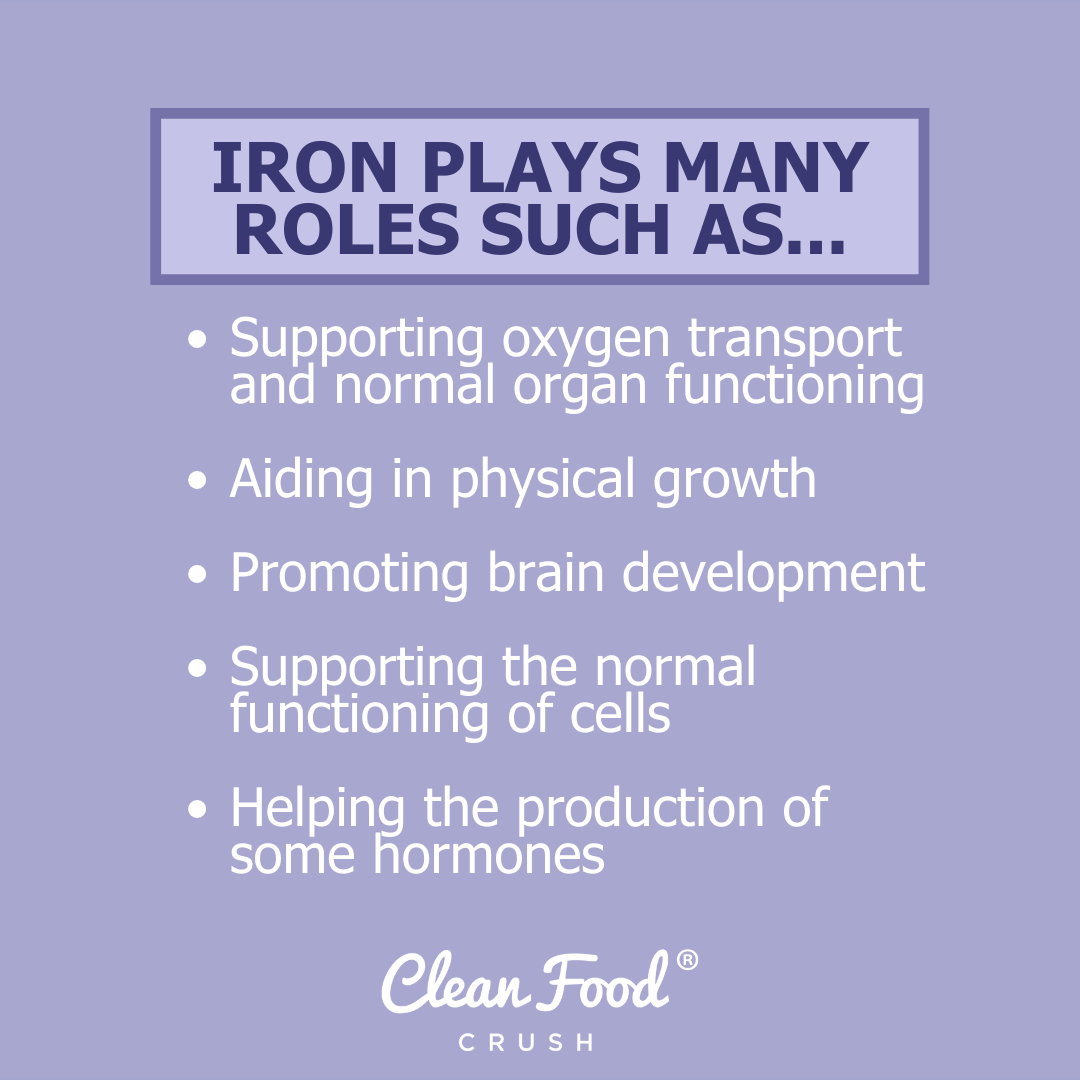
There are 2 types of iron: Heme and nonheme. Heme iron comes from animal foods and is easily absorbed and used in the body. Nonheme iron comes from plant foods. It isn’t as readily used by the body and is more susceptible to many factors interfering with its absorption.
Research has shown that about 25% of dietary heme iron gets absorbed, compared to just 17% of dietary nonheme iron.
The Recommended Dietary Allowances (RDA) for Iron Are:
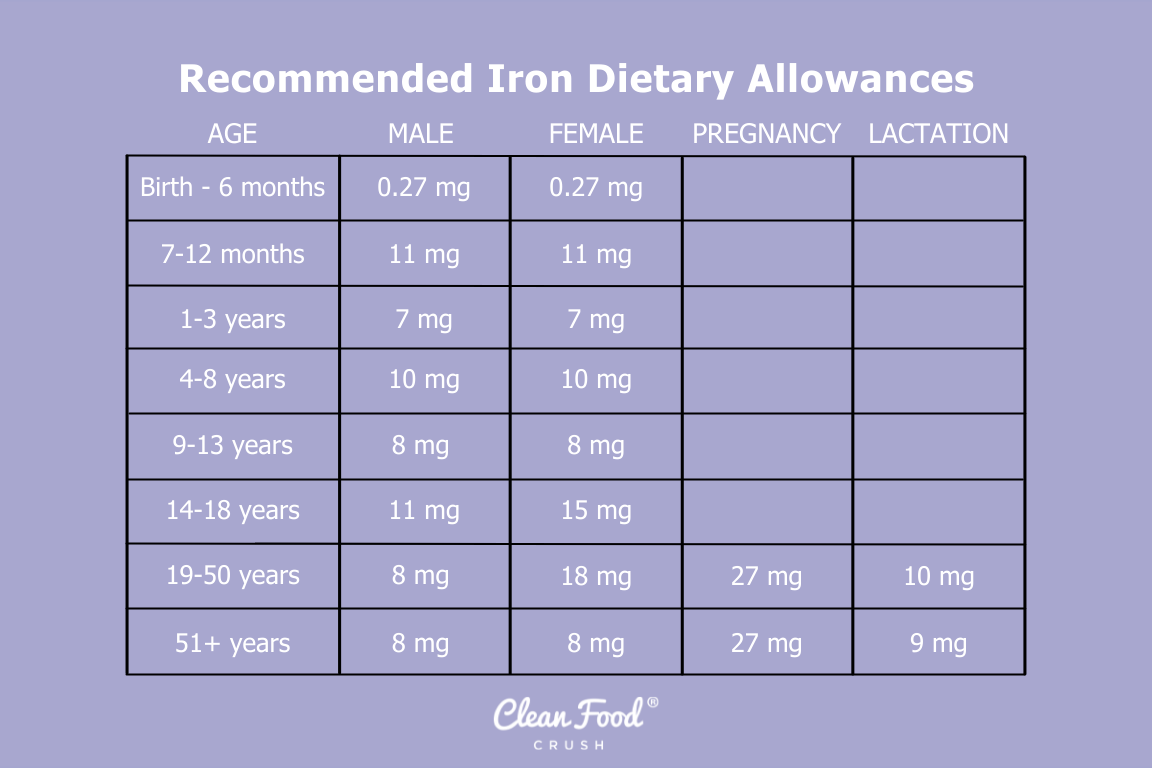
What Causes Iron Deficiency?
As of 2013, it was estimated that 10 million Americans were iron deficient, and 5 million had iron deficiency anemia. When you look at the worldwide population, it’s even more significant, affecting about 1.62 billion people, according to the World Health Organization. That’s about 20% of the world’s population!
Iron deficiency can cause a condition called iron deficiency anemia. This can cause symptoms like brittle nails, pale skin, fatigue, weakness, irregular heartbeat, and more. Iron deficiency anemia can cause major complications such as heart problems and developmental delays if left untreated.
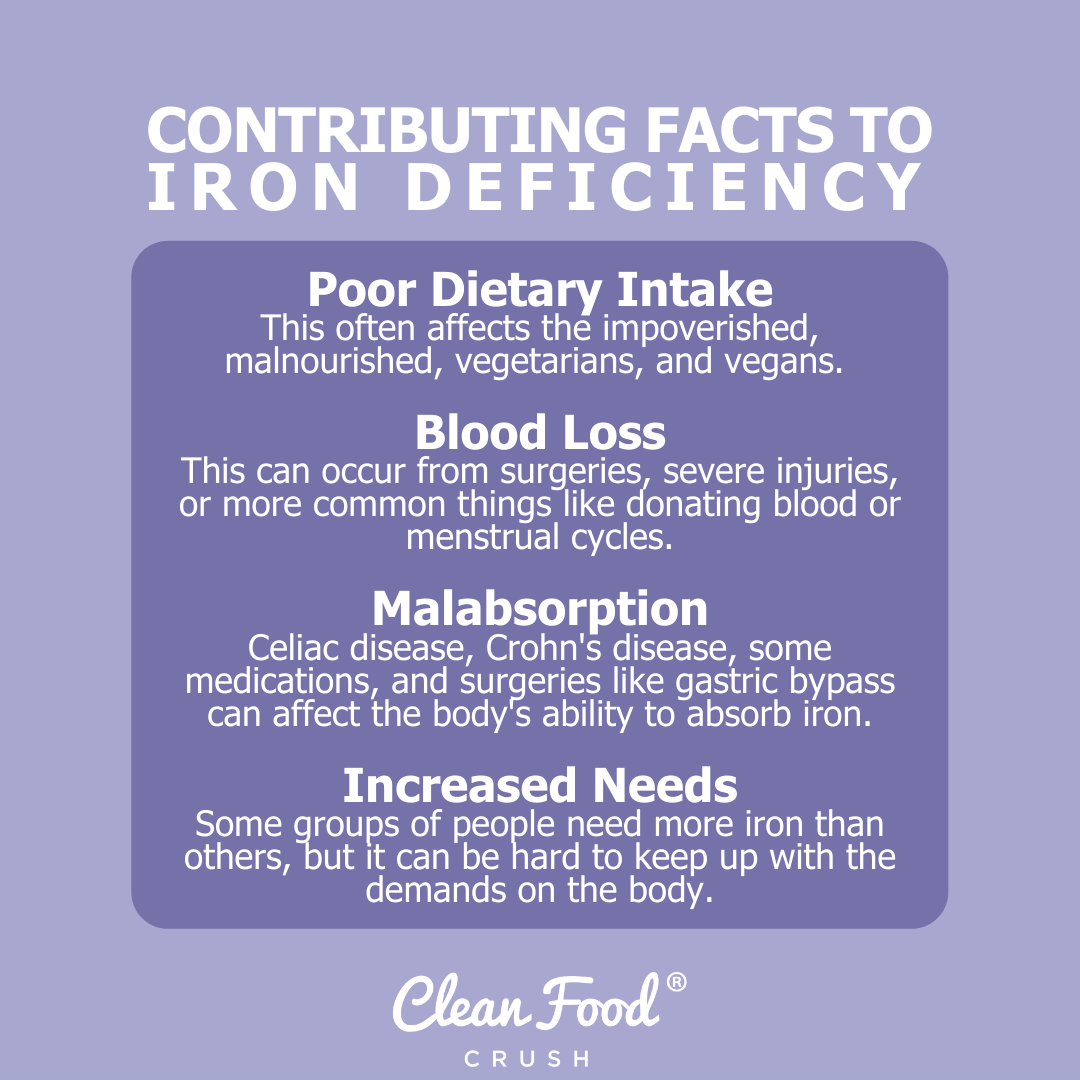
Many Things Can Contribute to Iron Deficiency, Including:
- Poor dietary intake. This often affects impoverished and malnourished children and adults but can also affect affluent cultures as well. People who follow a vegetarian or vegan diet are less likely to get enough iron due to avoiding many foods that are the best source of iron.
- Blood loss. This can occur from surgeries, severe injuries, or more common things like donating blood or menstrual cycles.
- Malabsorption. Even if people eat enough iron, they may not be absorbing it all. Conditions such as celiac disease, ulcerative colitis, or Crohn’s disease can make iron absorption more difficult. Similarly, surgeries like gastric bypass (which removes part of the intestines) and medications used to lower stomach acid can also affect the body’s ability to absorb iron.
- Increased needs. Some groups of people need more iron than others, but it can be hard to keep up with the demands on the body.
These aspects put certain groups of people at a greater risk of iron deficiency.
People More Likely to be Iron Deficient Include:
- Children
- People who are pregnant
- People with heavy menstrual bleeding
- Frequent blood donors and those with bleeding disorders
- People with cancer
- People with diseases that cause malabsorption, such as short bowel syndrome, irritable or inflammatory bowel disorders, celiac disease, pancreatitis, some types of cancer, and more
- People with heart failure
- Those who have had bariatric or gastrointestinal surgeries
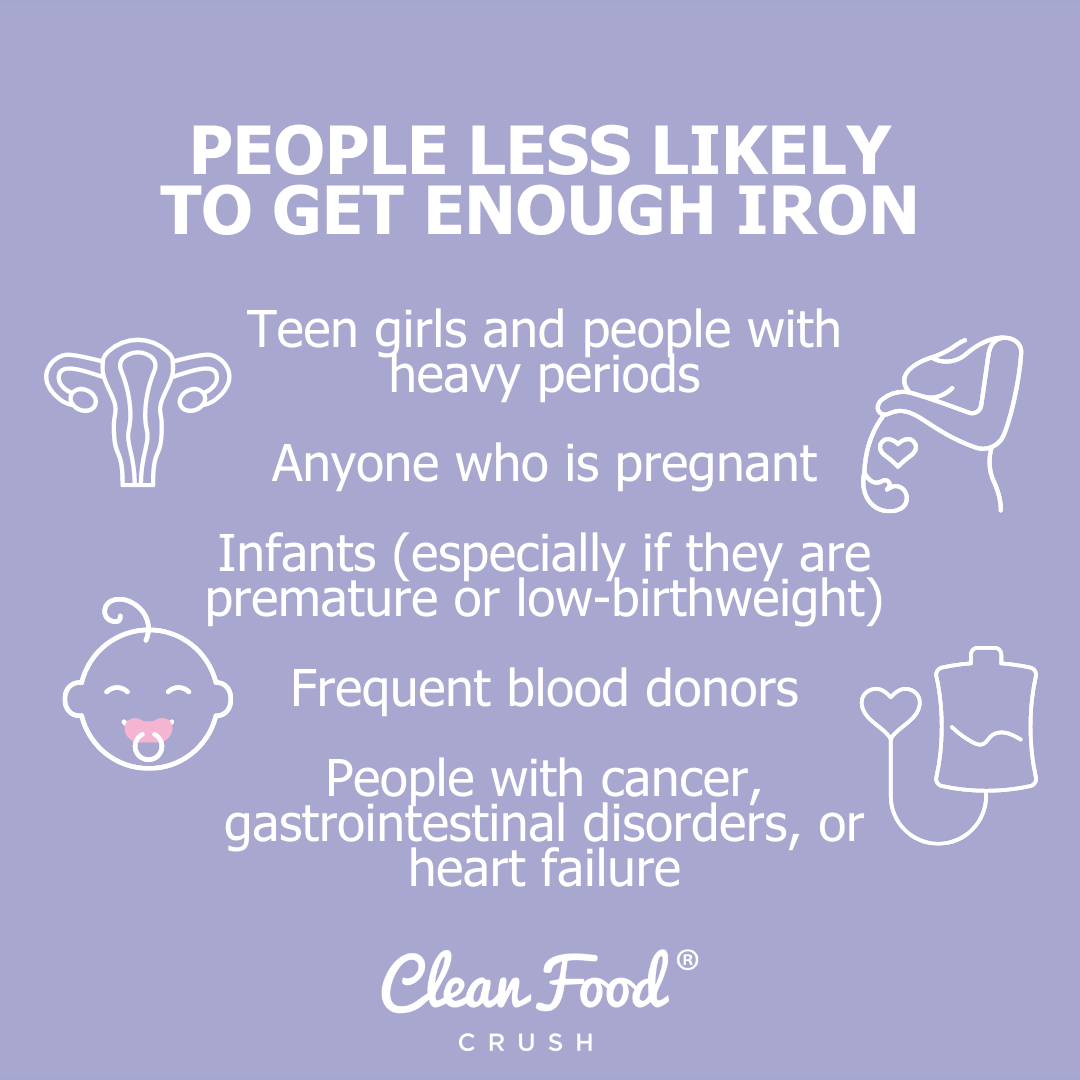
Iron Rich Foods
Heme iron-
- Meat
- Fish
- Other seafood, like oysters
- Poultry
- Eggs
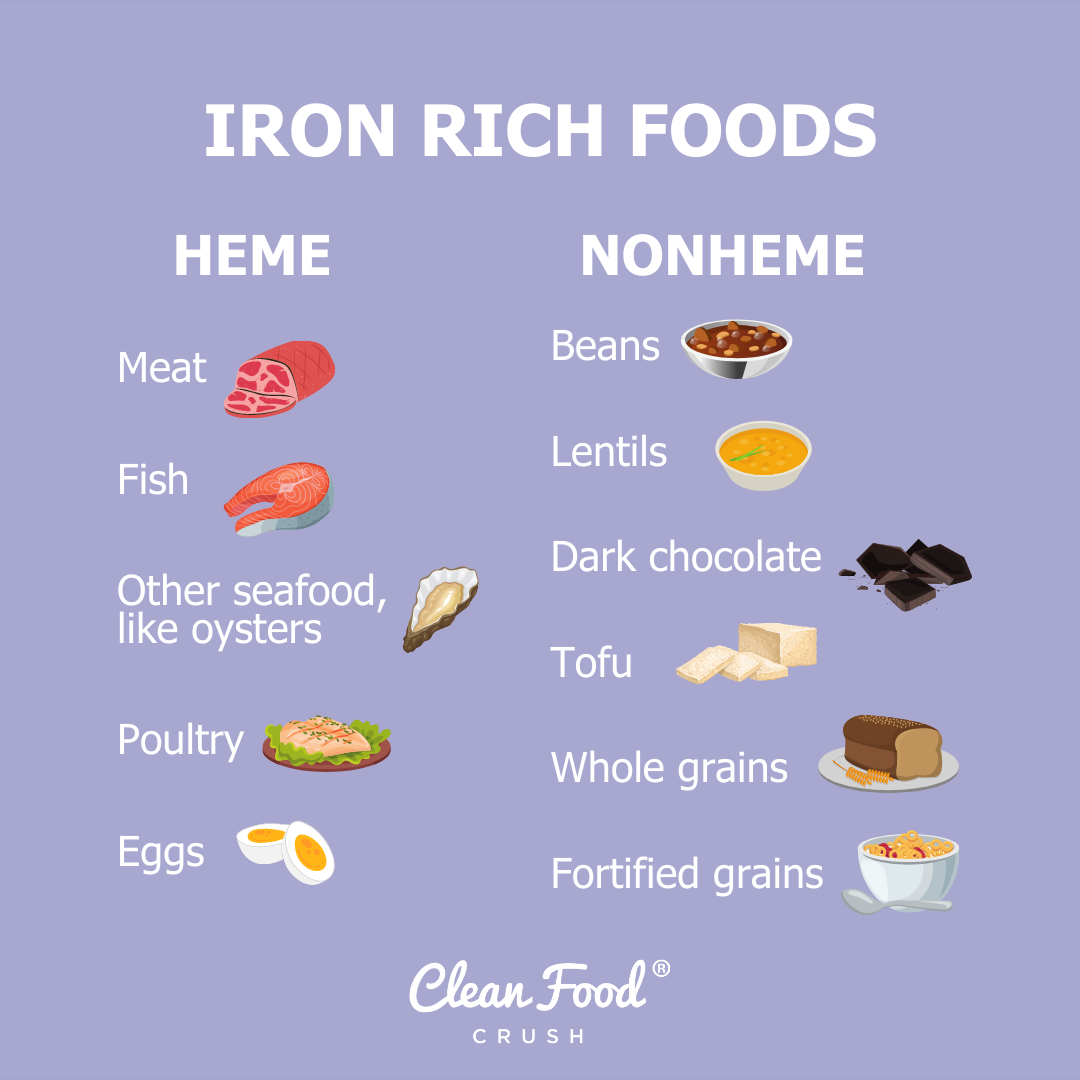
Nonheme Iron-
- Beans
- Lentils
- Dark chocolate
- Tofu
- Whole grains
- Fortified cereals and other fortified grains
Iron can also be obtained through supplements. Multivitamins for women are more likely than multivitamins for men to include iron due to menstruation. Irons supplements are known to cause constipation in some people, and supplement use should always be discussed with a medical professional before using.
Ways To Increase Iron Levels:
Besides consuming foods rich in iron and taking supplements as needed, there are other ways to influence iron intake.
Things that increase iron absorption:
- Vitamin C. Vitamin C is proven to help increase iron absorption and can be especially helpful for people prone to anemia.
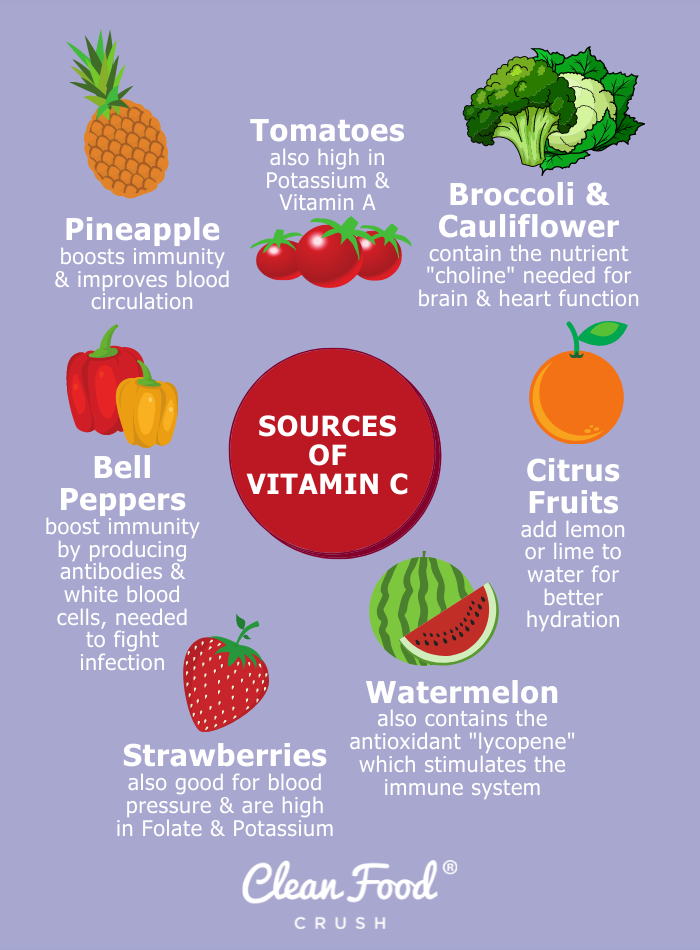
Things that can interfere or decrease iron absorption:
- Calcium. Iron and calcium compete for absorption, so consuming them at the same time can decrease iron absorption. However, it has been found that the body can adapt to this, and it generally isn’t an issue for people with normal iron status.
- Anti-nutrients. These are a class of compounds that include oxalates, phytates, tannins, lectins, and phytoestrogens. They are found in many plant foods, and some may inhibit iron absorption. However, foods that contain antinutrients also have many health benefits, so most research concludes that the benefits of consuming them within the context of a balanced diet far outweigh the risks. They may only be an issue for sensitive groups and those who already have an iron or other deficiency.
Some of The BEST Ways to Increase Iron Levels Are To:
- Eat iron-rich foods, especially those containing heme iron
- Pair iron-rich foods with food sources of vitamin C, which include things like citrus fruits, broccoli, strawberries, kiwi and other tropical fruits, bell peppers, and brussels sprouts.
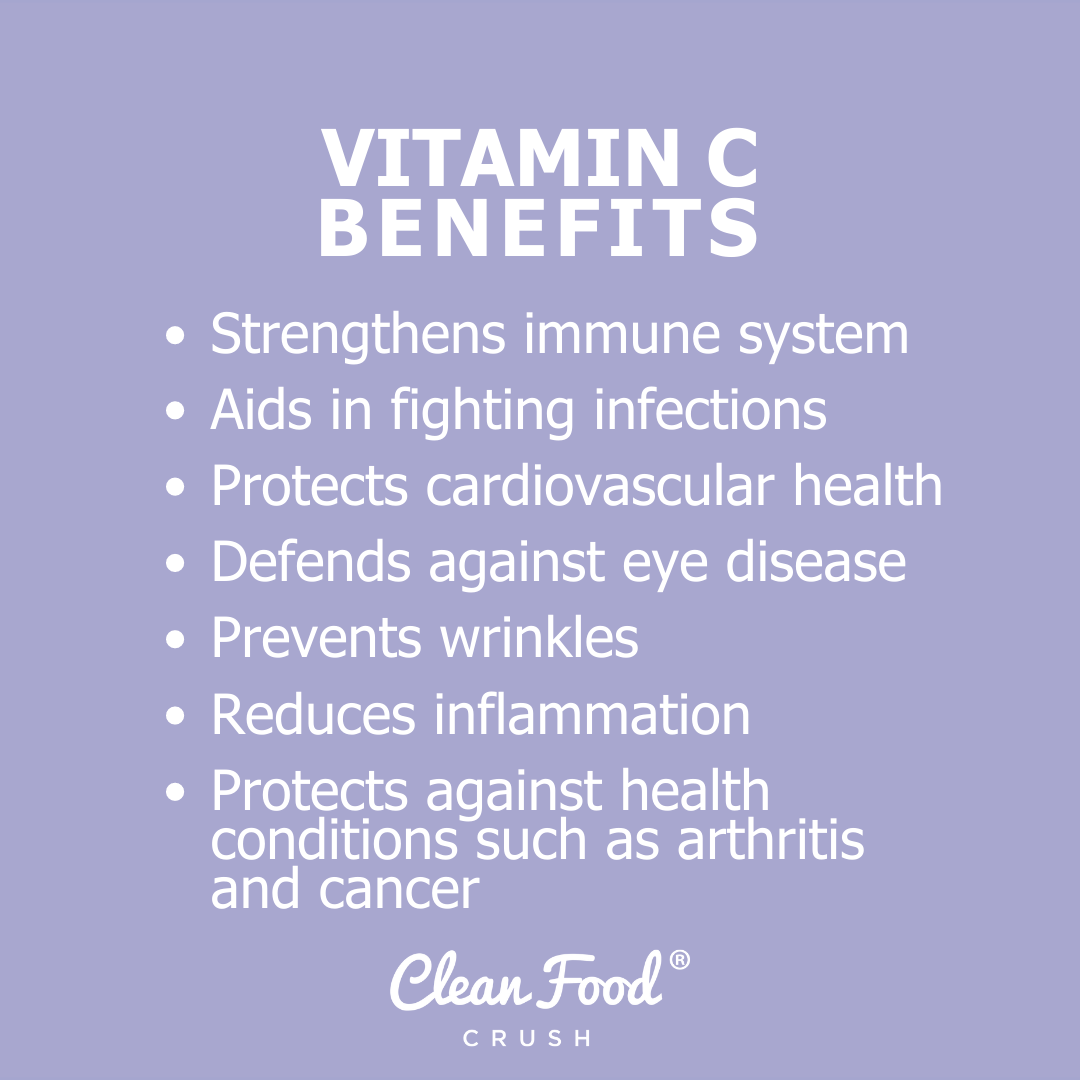 You can learn more about the power of vitamin C in this post.
You can learn more about the power of vitamin C in this post.- If deficient or at risk of becoming deficient, avoid high calcium foods like dairy products when eating iron-rich foods or taking iron supplements. Also, avoid pairing iron-rich foods and supplements with high anti-nutrient foods like tea, beans, soy, and whole grains. Instead, consume these on separate occasions.
These Recipes are Rich in Iron and Flavor:
Strawberry Chicken Salad with Avocado Dressing
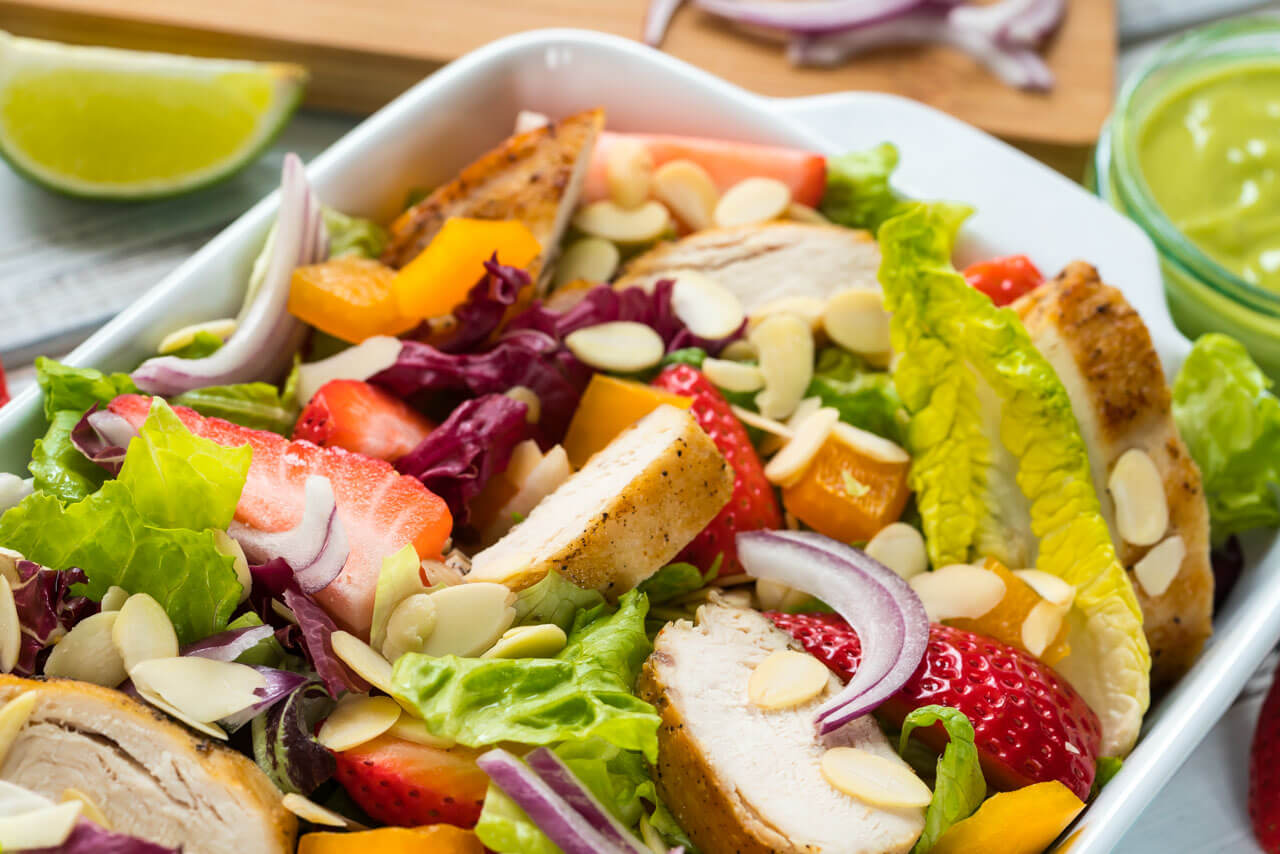
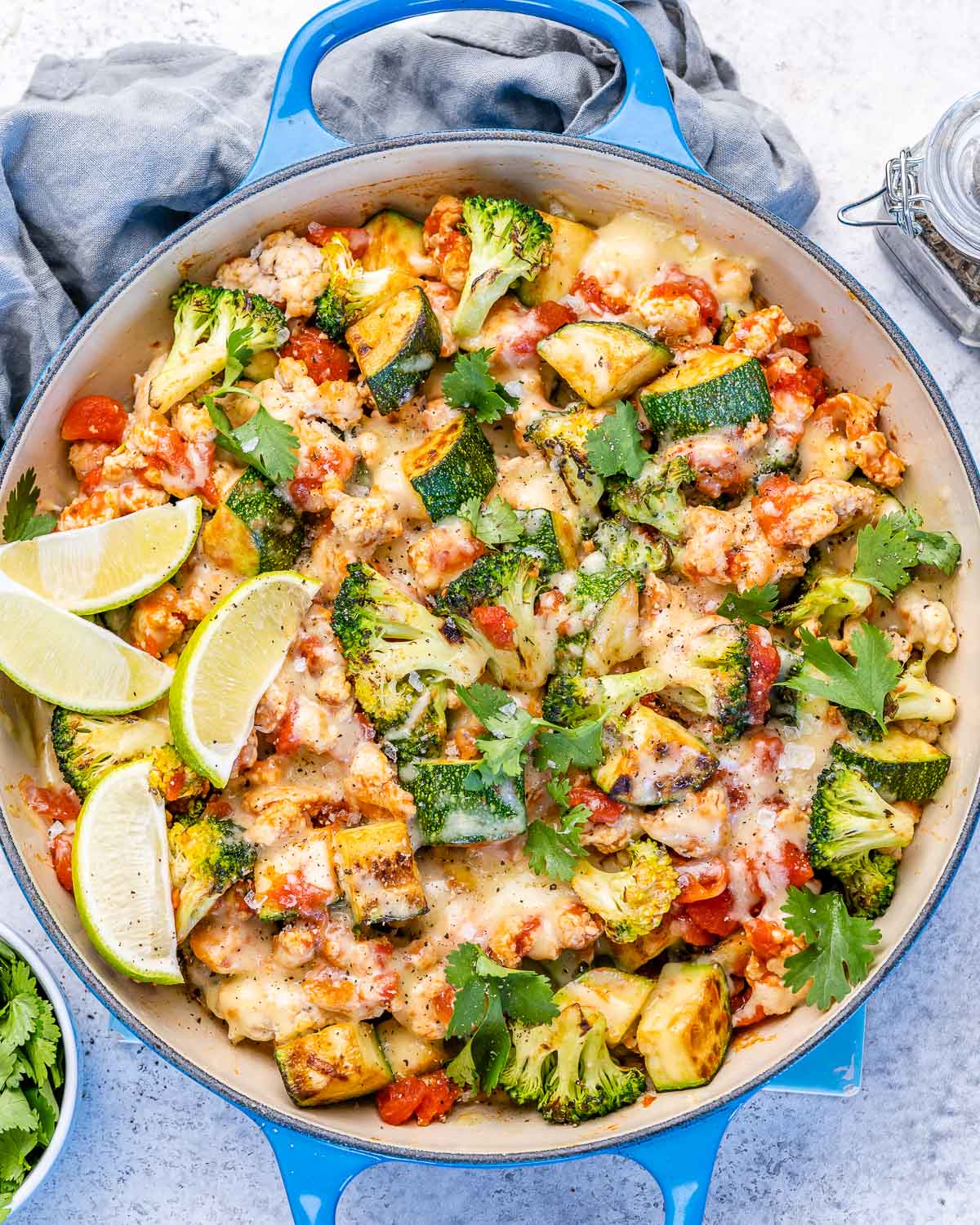
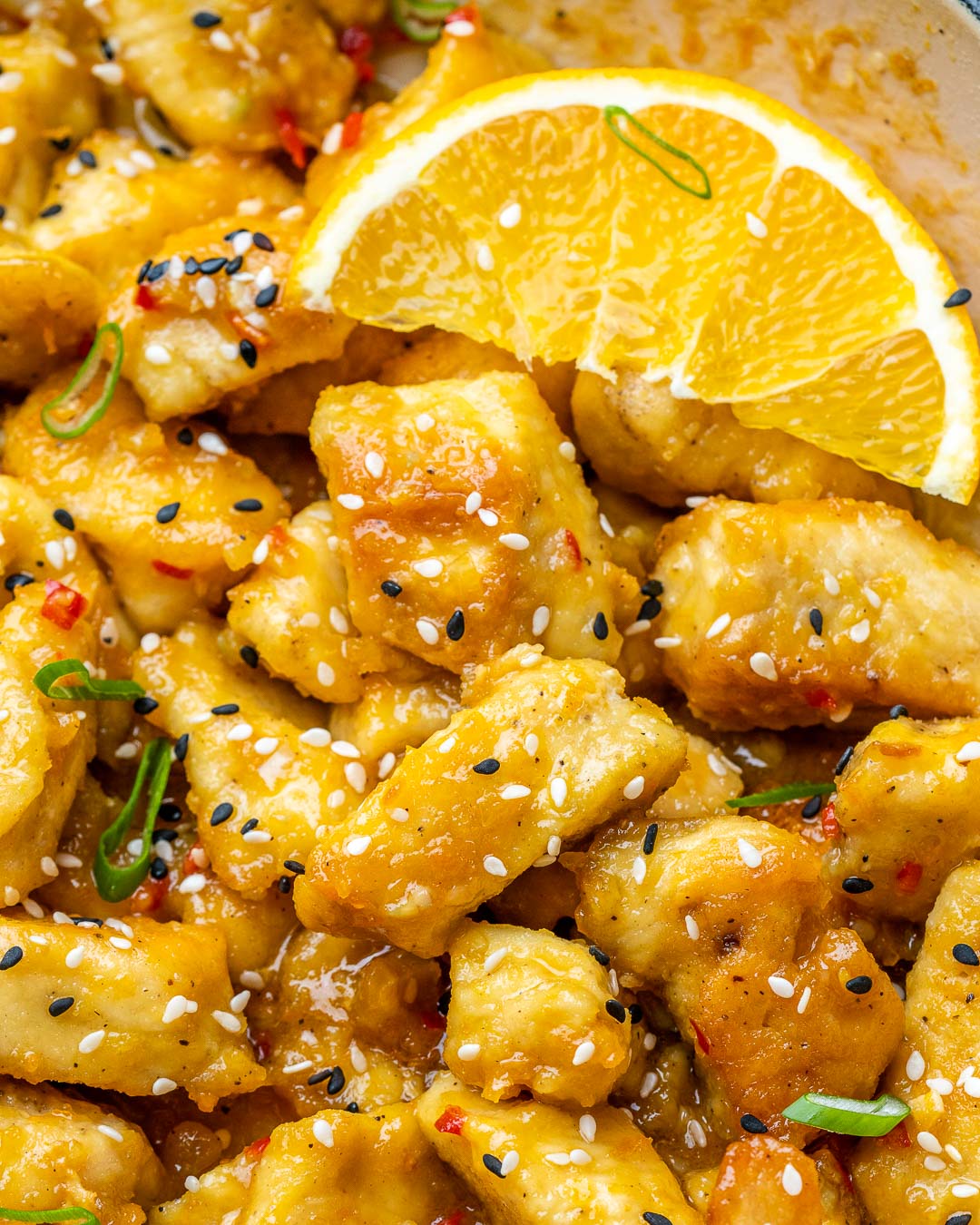
Roasted Salmon and Brussels Sprouts
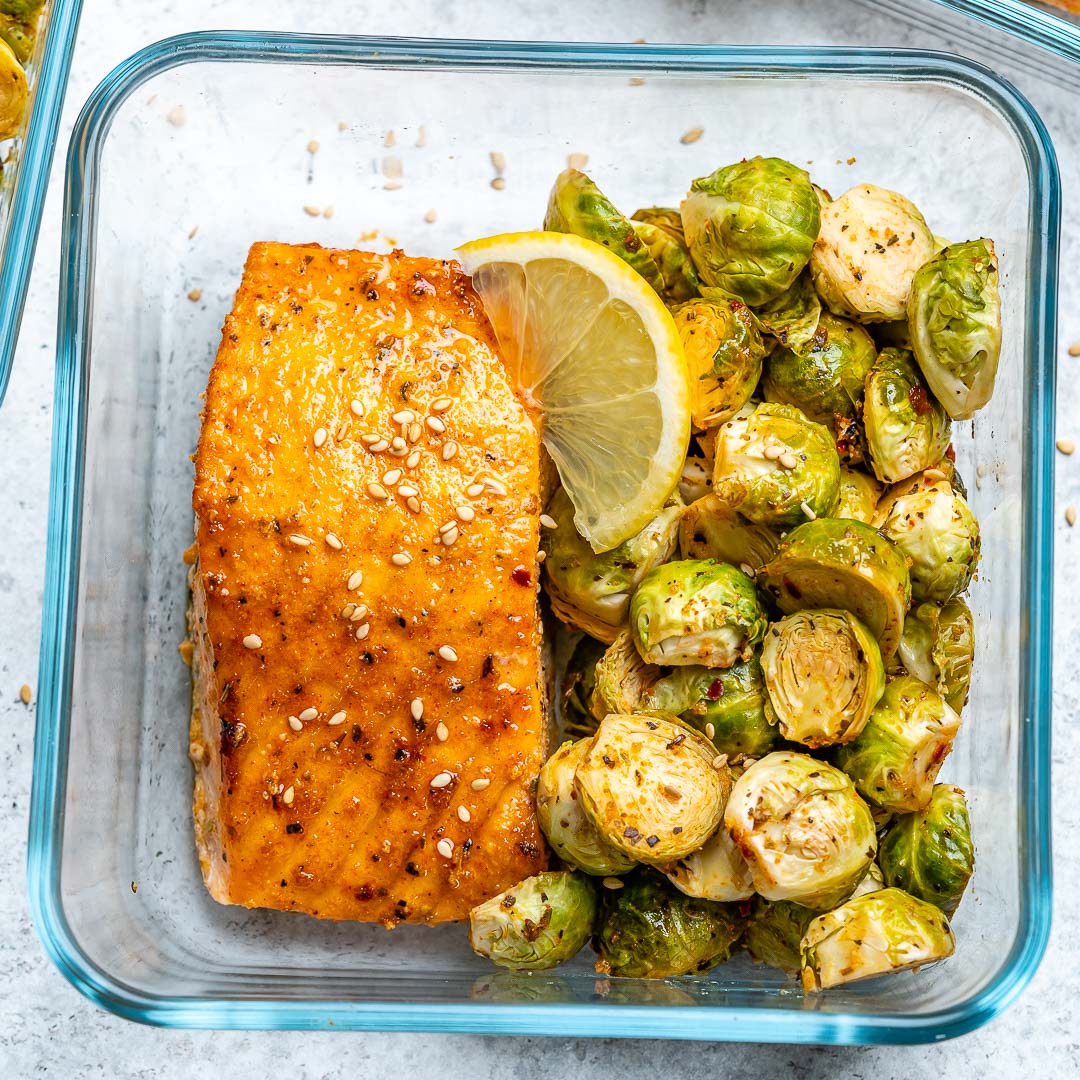
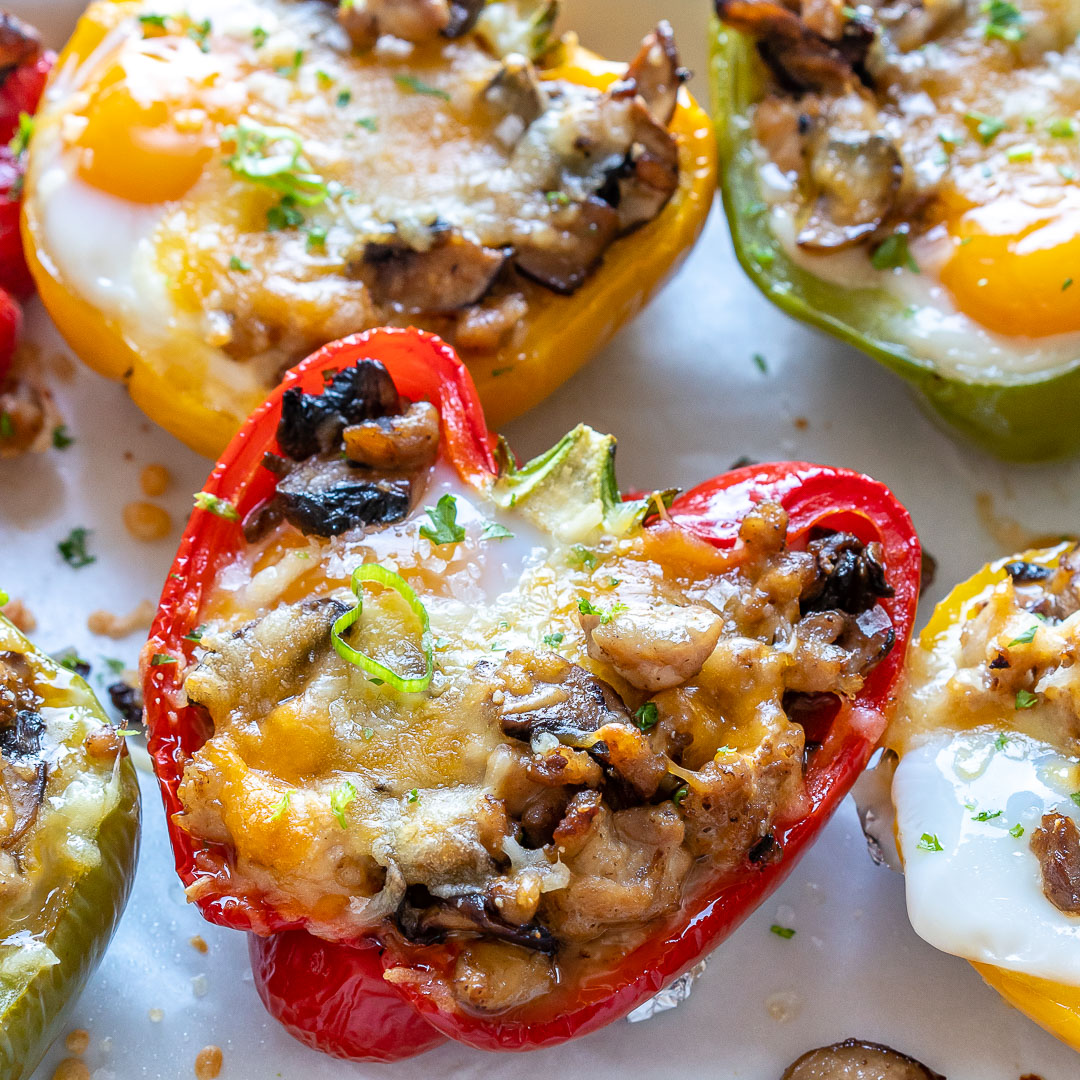
In Summary
Iron is a critical nutrient. While many things can place you at a greater risk of becoming deficient, there are many simple steps you can take to make sure you’re getting (and absorbing!) enough of it. Always consult with your doctor if you suspect or have been told you have iron deficiency, and follow medical advice and guidelines.
















